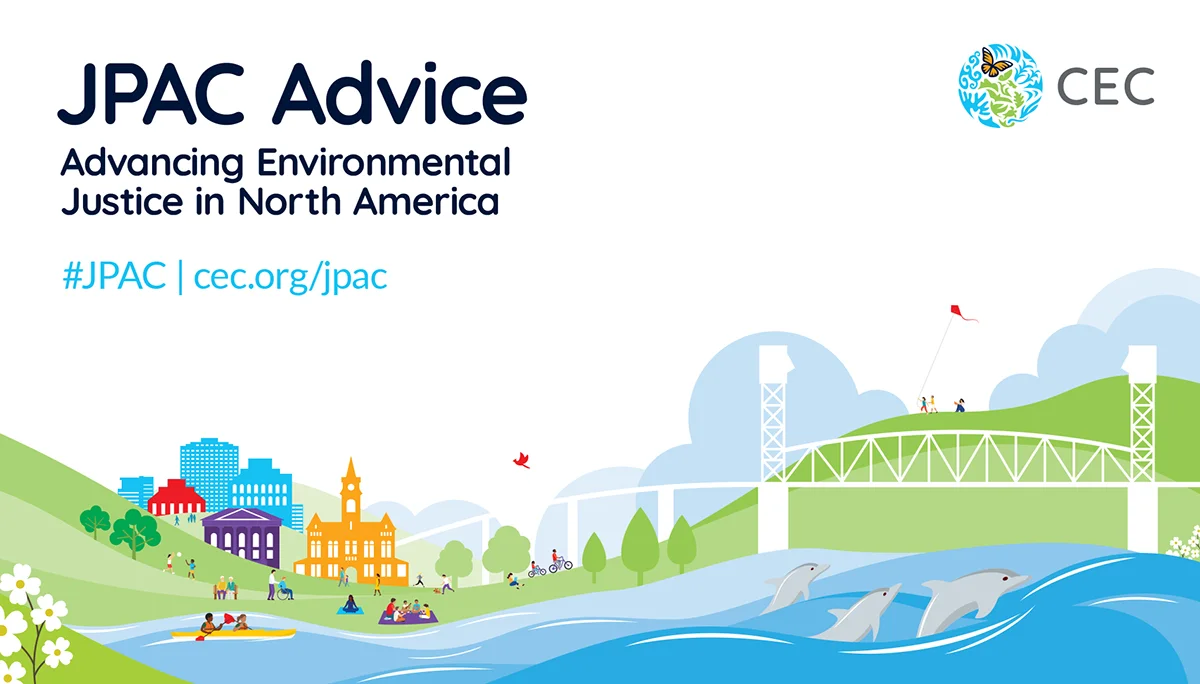New JPAC Advice on Advancing Environmental Justice in North America
Following the June 2024 Public Forum held in Wilmington, North Carolina, United States on 24 June 2024, the Joint Public Advisory Committee (JPAC) of the Commission for Environmental Cooperation (CEC) submitted an Advice to the CEC Council on advancing environmental justice (EJ) in North America.
Under the theme Advancing Environmental Justice in North America, JPAC gathered input from Indigenous communities, activists, experts, the general public, academia, NGOs and government officials on the different dimensions of EJ and how they are addressed in Canada, Mexico and the United States. JPAC also hosted an open dialogue on trilateral opportunities to address EJ in a regional context.
The discussions emphasized the need for a balanced approach that fosters sustainable development while addressing social inequalities and mobilizing multiple key actors for a whole of society approach. Key elements include the promotion of sustainable economic strategies, public participation of marginalized communities, environmental education, the active involvement of children and youth, access to information, and legal and public policy instruments.
Following these discussions, the following recommendations were submitted to the CEC Council on 10 October 2024.
JPAC Recommendations
1. Identify and promote economic development strategies that minimize environmental impacts and ensure equitable distribution of environmental benefits and burdens.
Discussions during the JPAC Forum underscored the pivotal role of the private sector, both in exacerbating environmental degradation and also in contributing to potential solutions.
JPAC recommends that the Council identify and promote economic development strategies that prioritize environmental and biodiversity protection, as well as a more equitable distribution of environmental benefits and burdens, by:
- Fostering collaboration with local, national, and international partners to address regional environmental issues (through JPAC Forums/activities)
- Promoting sustainable practices among the private sector
- Integrating the promotion of relevant economic development strategies and sustainable best practices in the next CEC Strategic Plan
2. Adopt an intersectional and multidisciplinary approach throughout CEC’s work.
Speakers and participants highlighted the importance of applying intersectionality through a multidisciplinary perspective in efforts to protect the environment.
JPAC recommends that the Council adopt an intersectional and multidisciplinary approach throughout CEC’s work, in:
- The creation of spaces and opportunities to include the voices of historically marginalized communities and individuals with diverse and intersectional identities
- The creation and adoption of a code of conduct for CEC meetings to reflect the CEC’s commitment to provide a safe, productive and welcoming environment for all
- The harmonization and use of more inclusive and fair language in CEC’s communications in the three languages
- The integration of an environmental justice and intersectional approach as a cross-cutting theme within the next CEC’s Strategic Plan
3. Enhance the participation of diverse populations facing environmental justice issues in CEC activities.
The creation of the North American Environmental Justice Action Center (NAEJAC) reflects the three countries' commitment to environmental justice and growing regional efforts.
JPAC recommends that the Council leverage current and future regional and domestic efforts, to enhance the JPAC and the CEC’s engagement with diverse populations, and boost public participation by:
- Supporting capacity-building programs for historically marginalized communities to advocate for their environmental rights and needs
- Sharing and leveraging best practices and relevant information from trinational and national programs and promoting CEC mechanisms to help communities access resources and platforms for meaningful participation in decision-making and EJ
- Strengthening the Submissions on Enforcement Matters process to improve access to environmental information and promote transparency in North America
4. Align the CEC’s future environmental justice efforts in North America with JPAC activities
- In support of the creation of the NAEJAC, JPAC proposes contributing to the center’s future activities via its public engagement mechanisms
- Recognizing education's vital role in advancing environmental justice, JPAC recommends that the Council prioritize education as a key topic in the next CEC strategic plan
JPAC is confident that the recommendations herein are relevant to the CEC Council’s strategic priorities and JPAC's members are unanimous in supporting this Advice to Council.
Please click here to consult the full Advice.
If you would like to know more about CEC initiatives, opportunities and efforts, you can sign up for our newsletter and follow us on social media.

Joint Public Advisory Committee (JPAC) submits Advice to the CEC Council following Public Forum on advancing environmental justice in North America.
About the CEC
The Commission for Environmental Cooperation (CEC) was established in 1994 by the governments of Canada, Mexico and the United States through the North American Agreement on Environmental Cooperation, a parallel environmental agreement to NAFTA. As of 2020, the CEC is recognized and maintained by the Environmental Cooperation Agreement, in parallel with the new Free Trade Agreement of North America. The CEC brings together a wide range of stakeholders, including the general public, Indigenous people, youth, nongovernmental organizations, academia, and the business sector, to seek solutions to protect North America’s shared environment while supporting sustainable development for the benefit of present and future generations
The CEC is governed and funded equally by the Government of Canada through Environment and Climate Change Canada, the Government of the United States of Mexico through the Secretaría de Medio Ambiente y Recursos Naturales, and the Government of the United States of America through the Environmental Protection Agency.